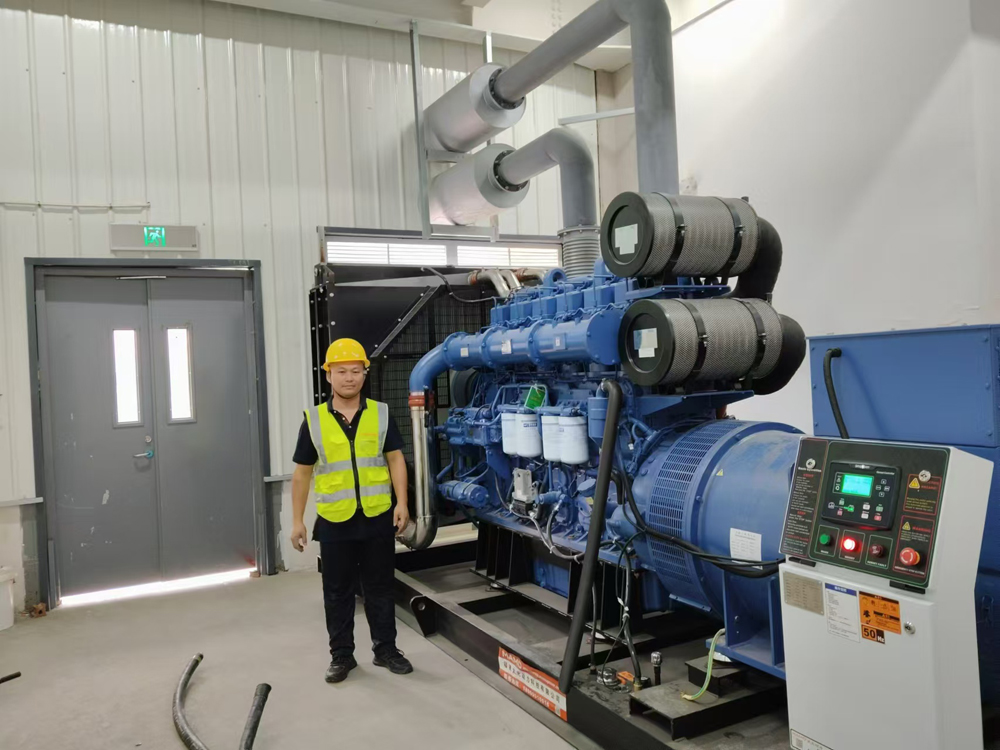In high-temperature conditions, special attention must be paid to the cooling system, fuel management, and operational maintenance of diesel generator sets to prevent malfunctions or efficiency loss. Below are the key considerations:
1. Cooling System Maintenance
- Check Coolant: Ensure the coolant is sufficient and of good quality (anti-rust, anti-boil), with the correct mixture ratio (typically 1:1 water to antifreeze). Regularly clean dust and debris from the radiator fins.
- Ventilation: Place the generator set in a well-ventilated, shaded area, avoiding direct sunlight. Install a sunshade or forced ventilation if necessary.
- Fan & Belts: Inspect the fan for proper operation and ensure belt tension is correct to prevent slippage, which reduces cooling efficiency.
2. Fuel Management
- Prevent Evaporation: Diesel fuel evaporates more easily in high heat. Ensure the fuel tank is well-sealed to prevent leaks or vapor loss.
- Fuel Quality: Use summer-grade diesel (e.g., #0 or #-10) to avoid clogged filters due to high viscosity. Drain water and sediment from the tank periodically.
- Fuel Lines: Check for cracked or aged fuel hoses (heat accelerates rubber degradation) to prevent leaks or air ingress.
3. Operational Monitoring
- Avoid Overloading: High temperatures may reduce the generator’s output capacity. Limit the load to 80% of rated power and avoid prolonged full-load operation.
- Temperature Alarms: Monitor coolant and oil temperature gauges. If they exceed normal ranges (coolant ≤ 90°C, oil ≤ 100°C), shut down immediately for inspection.
- Cooling Breaks: For continuous operation, shut down every 4-6 hours for a 15-20 minute cooldown period.
4. Lubrication System Maintenance
- Oil Selection: Use high-temperature-grade engine oil (e.g., SAE 15W-40 or 20W-50) to ensure stable viscosity under heat.
- Oil Level & Replacement: Check oil levels regularly and change oil and filters more frequently (heat accelerates oil oxidation).
5. Electrical System Protection
- Moisture & Heat Resistance: Inspect wiring insulation to prevent short circuits caused by humidity and heat. Keep batteries clean and check electrolyte levels to prevent evaporation.
6. Emergency Preparedness
- Spare Parts: Keep critical spare parts (belts, filters, coolant) on hand.
- Fire Safety: Equip a fire extinguisher to prevent fuel or electrical fires.
7. Post-Shutdown Precautions
- Natural Cooling: Allow the generator to cool naturally before covering or closing ventilation.
- Leak Inspection: After shutdown, check for fuel, oil, or coolant leaks.
By following these measures, the impact of high temperatures on diesel generator sets can be minimized, ensuring stable operation and prolonging service life. If alarms or abnormalities occur frequently, consult a professional for maintenance.
Post time: Jul-07-2025

















